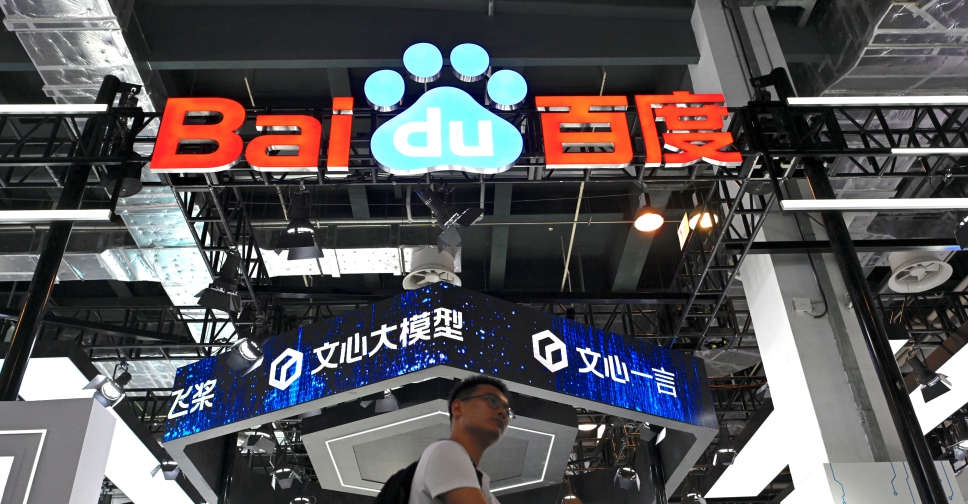
Four Chinese tech firms including Baidu and SenseTime Group on Thursday launched their artificial intelligence (AI) chatbots to the public after receiving government approval, as China's government pushes to widen the use of such products amid competition with the US.
Baidu, China's leading online search provider, said in a statement that its ChatGPT-like chatbot, Ernie Bot, was now fully accessible to the public. A SenseTime spokesperson told Reuters via email that its chatbot, SenseChat, was also now "fully available to serve all users".
Two AI startups, Baichuan Intelligent Technology and Zhipu AI, also announced similar public launches on Thursday.
Shares in Baidu and SenseTime jumped in early Hong Kong trade, gaining 3.1 per cent and 2.7 per cent respectively in a broader market that was trading 0.4 percent lower.
Unlike other countries, China requires companies to submit security assessments and receive clearance before releasing mass market AI products.
Authorities have recently accelerated efforts to support companies to develop AI as the technology increasingly becomes a focus of competition with the US.
Chinese media reported that a total of 11 firms had received approvals from the government, including TikTok owner ByteDance and Tencent Holdings. Neither company immediately responded to requests for comment about their AI plans.
Some local media outlets said other tech firms working on AI large language models, including Alibaba Group, had not obtained government approval. Alibaba did not immediately respond to a request for comment.
"I think the ones that got approved have an early mover advantage to be able to fine-tune their product faster than competitors," Kai Wang, an analyst at Morningstar.
ChatGPT-maker OpenAI, which is backed by Microsoft, is on track to generate more than $1 billion in revenue over the next 12 months, tech-focused publication The Information reported on Tuesday.
The approvals were widely anticipated after China published a set of interim rules aimed at regulating generative AI products for the public that went into effect on August 15.
Previously, companies were only allowed to conduct small-scale public tests of AI products but with the new rules, companies have widened their AI product tests by enabling more features and engaging in more marketing. Prior government approval is not needed for products targeting businesses.
Shawn Yang, an analyst at Blue Lotus Capital Advisors, said the government's move to greenlight AI products could spark consolidation in the industry.
"Many people were rushing into the large language model business," he said, "But the industry may soon consolidate. Only those with data and tech capability will be able to push forward."




 Nasdaq set to confirm bear market as Trump tariffs trigger recession fears
Nasdaq set to confirm bear market as Trump tariffs trigger recession fears
 Dana Gas and Crescent Petroleum exceed 500M boe in Khor Mor field
Dana Gas and Crescent Petroleum exceed 500M boe in Khor Mor field
 China to impose tariffs of 34% on all US goods
China to impose tariffs of 34% on all US goods
 Shares bruised, dollar crumbles as Trump tariffs stir recession fears
Shares bruised, dollar crumbles as Trump tariffs stir recession fears
 Wall Street futures sink as tariffs fuel recession fears
Wall Street futures sink as tariffs fuel recession fears



